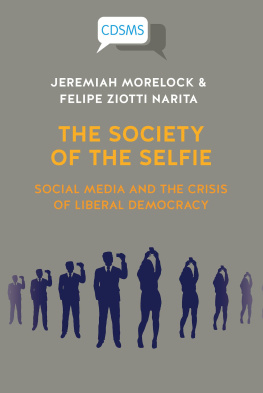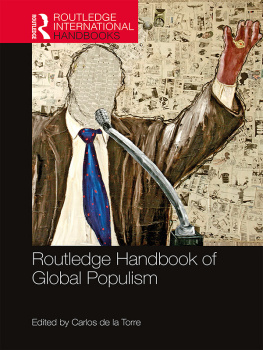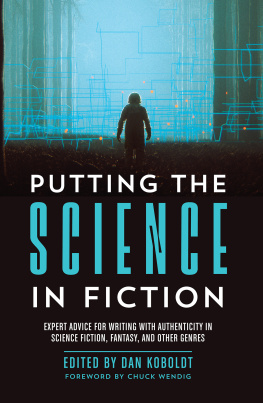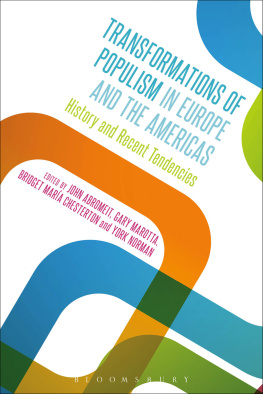Pandemics, Authoritarian Populism, and Science Fiction
With a focus on I Am Legend and Day of the Deadtwo series of film remakes of popular science fiction storiesthis book addresses the social origins of the recent surge in authoritarian and populist social movements. Exploring the ways in which the themes of tribalism, confidence in medical science, and confidence in military violence changed over the years in the process of re-telling these stories in popular culture, the author identifies the shift towards a narrowing of moral scope, an embrace of military violence and a distrust of medical science with three elements of authoritarian populism: tribalism, distrust of rational elites and their institutions, and willingness for violent coercion. An engaging study of popular culture that sheds light on contemporary political attitudes, Pandemics, Authoritarian Populism, and Science Fiction will appeal to scholars of sociology, social theory, and cultural studies with interests in critical theory, film studies, and science fiction.
Jeremiah Morelock is an instructor of sociology at Boston College, USA, and the Director of the Critical Theory Research Network. He is the editor of Critical Theory and Authoritarian Populism and How to Critique Authoritarian Populism: Methodologies of the Frankfurt School.
Visual Modernities
Series Editor:
Martyn Hudson, Northumbria University
The sociological imagination of modernity is entangled with our senses and, primarily, with vision, yet the process of being able to see something is often extraordinarily complex. Marxs attempt to visualise commodities, Durkheim on totems of religious life, Simmel on money and the metropolis, Elias on social taste, are all projects which attempt to see beyond the empirical and into levels of abstraction and immateriality that lie beyond the senses. Visualisation is part of the making of modernity and a response to it.
This series explores and elaborates upon our experiences of modernity. It offers ways of seeing from the margins of our world and from its exemplary sites of industry and urbanisation. Grand narratives of human history mix with micro-histories that are embedded across our globe. Using multi-disciplinary methods, it seeks to expand upon our knowledge of global and local visual cultures, whether in architecture, painting, photography, theatre, film and other cultural forms. Examining the material and the tangible as well as the immaterial and the imaginary it aims to offer the best of sociological thinking and thought: literally re-visioning our social world.
Visual Modernities welcomes new studies that have visualisation at their heart and embed new ways of perceiving our shared world and our multiple and complex experience of modernity. It seeks to publish works that are innovative, multi-disciplinary in scope and which challenge and rupture the classical social sciences with new ways of looking at method, theory and our social futures.
Titles in the series:
Visualising the Empire of Capital
Martyn Hudson
Art, Critical Pedagogy and Capitalism
Paul Alexander Stewart
Pandemics, Authoritarian Populism, and Science Fiction
Medicine, Military, and Morality in American Film
Jeremiah Morelock
First published 2021
by Routledge
2 Park Square, Milton Park, Abingdon, Oxon OX14 4RN
and by Routledge
605 Third Avenue, New York, NY 10158
Routledge is an imprint of the Taylor & Francis Group, an informa business
2021 Jeremiah Morelock
The right of Jeremiah Morelock to be identified as author of this work has been asserted by him in accordance with sections 77 and 78 of the Copyright, Designs and Patents Act 1988.
All rights reserved. No part of this book may be reprinted or reproduced or utilised in any form or by any electronic, mechanical, or other means, now known or hereafter invented, including photocopying and recording, or in any information storage or retrieval system, without permission in writing from the publishers.
Trademark notice: Product or corporate names may be trademarks or registered trademarks, and are used only for identification and explanation without intent to infringe.
British Library Cataloguing-in-Publication Data
A catalogue record for this book is available from the British Library
Library of Congress Cataloging-in-Publication Data
Names: Morelock, Jeremiah, author.
Title: Pandemics, authoritarian populism, and science fiction : medicine, military, and morality in American film / Jeremiah Morelock.
Description: New York : Routledge, 2021. | Series: Visual modernities | Includes bibliographical references and index.
Identifiers: LCCN 2020043278 (print) | LCCN 2020043279 (ebook) | ISBN 9780367435103 (hardback) | ISBN 9781003003779 (ebook)
Subjects: LCSH: Science fiction films--United States--History and criticism. | Epidemics in motion pictures. | Authoritarianism in motion pictures. | Populism in motion pictures.
Classification: LCC PN1995.9.S26 M63 2021 (print) | LCC PN1995.9.S26 (ebook) | DDC 791.43/750973--dc23
LC record available at https://lccn.loc.gov/2020043278
LC ebook record available at https://lccn.loc.gov/2020043279
ISBN: 978-0-367-43510-3 (hbk)
ISBN: 978-0-367-72057-5 (pbk)
ISBN: 978-1-003-00377-9 (ebk)
Films are known for showing us to ourselves, sometimes couched in thick and spectacular metaphor, sometimes quite realistically. Through films, just as through our dreams, we play out our fears and fantasies without risking the repercussions that might occur in the real world. Indeed, the film is a pseudo-reality that we passively experience, riding the highs and lows much like a dream; and although we do not literally dream up the films we see, the emotional resonances of films speak to the same deep well of internal stirrings that the metaphors of dreams emanate from.
As the dreamer of a dream, I generate the imagery out of my own dream-workthrough condensation and displacement I translate my latent thoughts into experienced dream contentand I experience the imagery according to the same lexicon of connotation that guides my dream-work into existence. The dreamer both creates and experiences the dream, and both acts (creation and experience) happen simultaneously, according to the same logics of association. As a viewer of a film, I am only individually on one side of the event. I do not create the film, but I experience it in a very similar way to how I experience a dreamit activates the same lexicon of connotation as the dream. I do not generate the film-as-dream. A collection of other people does that, largely guided by the aim of creating a film-as-dream experience that will resonate with the minds of as many people as possible. In this sense, writers, producers, actors, and other industry professionals generate it on behalf of society as a whole; or perhaps society generates the dream through writers, producers, actors, and other industry professionals. Yet I do experience the film-as-dream, in my own way, according to my own psychology, my own repertoire of fears, longings, experiences and associations, embedded as I am in my time, place, society, and social location.
In science fiction, we can indulge our imaginations in broad and dramatic representations of the limits of human existence. Here the longing for utopia and the fear of dystopia have fertile soil (Sontag ), and so we can venture further into them with science fiction than with more down to earth genres. Indeed, the extremes of science fiction lend it even more of an obvious dream-like quality in the sense that its anything-goes unrealism is part of its ostensible glamor.












